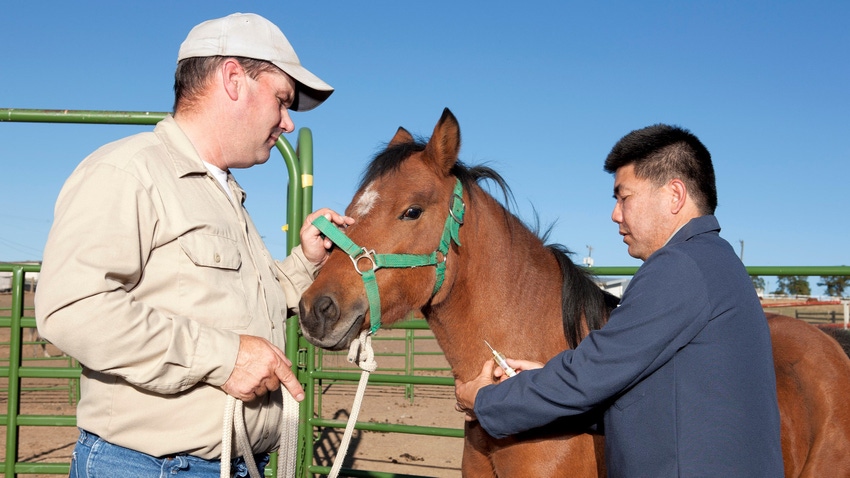
Washington agriculture officials are joining the chorus of voices in the West urging producers to take precautions against West Nile virus.
The State Department of Agriculture has confirmed two cases of the virus in horses in Grant and Benton counties, both in central Washington. The horses were unvaccinated or under-vaccinated but are recovering.
The Washington Animal Disease Diagnostic Laboratory in Pullman, operated by Washington State University, reported the positive test results to WSDA’s State Veterinarian’s Office in late September.
West Nile virus is spread by mosquitoes that have fed on infected birds. The disease sickens people, horses, birds, and other animals, but it does not spread directly from horses to people or other animals, state ag officials say.
The disease is fatal to horses in about a third of the cases where clinical signs are apparent, but most horses don’t become ill or show symptoms. Horses that do become ill can display loss of coordination, loss of appetite, confusion, fever, stiffness, and muscle weakness, particularly in their hindquarters.
Washington State Veterinarian Amber Itle recommends spring as the best time to vaccinate horses against West Nile virus or obtain an annual booster shot.
“We have seen a decline in Washington state in recent years of this virus in horses, and we believe that is due to horse owners taking action before the season with vaccination,” she said. “Any horse owner can request this vaccine from their veterinarian.”
However, even if spring has come and gone, horses may still benefit from first-time vaccinations or an annual booster shot at any time of the year, ag officials say. Horse owners not up to date on shots should check with their veterinarian about a vaccination protocol, the officials advise.
Cases in Utah
Itle’s urgings come as a Utah State University expert recently warned of the virus in that state as a wet winter and late-summer precipitation has increased mosquito populations throughout the West. One human and several non-human cases of WNV were recently reported in Utah.
Alexander Knudsen, a USU Extension arthropod diatnostician, offers the following tips to prevent being bitten by an infected mosquito:
Reduce larval habitat by emptying water-holding containers and basins.
Be sure home windows have screens to prevent mosquitos from entering.
Avoid areas with high mosquito populations, and be especially vigilant during the peak mosquito activity times of dawn and dusk.
Use insect repellents that contain Deet, Picardin, or other EPA-approved repellents as directed.
If you are also using sunscreen, apply sunscreen first and insect repellent second for best results.
Cover up. Wear loose-fitting clothing such as long-sleeved shirts and pants, and protect your feet by wearing shoes and socks.
Treat your clothes with 0.5% Permethrin (an insecticide) if spending time in areas with high mosquito populations.
Mosquitos lay eggs in fresh stagnant water, including man-made pools, ditches, and marshy areas, with thousands of mosquitos developing in seven to 10 days, Knudson explains. Adult females feed on birds, people, and other animals to produce eggs.
Blood feeding is when transmission occurs. Wild birds are considered reservoir hosts, meaning the birds can infect more mosquitos. People and other animals cannot re-infect mosquitos.
Protecting horses
Besides vaccination, horse owners can take action to limit horse exposure to mosquitos, the WSDA advises. Such actions include:
Reducing or eliminating sources of stagnant or standing water
Stabling horses during peak mosquito periods (dawn and dusk)
Using equine-approved mosquito repellants
Placing fans inside barns or stalls to maintain air movement
Avoiding use of incandescent bulbs inside stables at night
In Washington, veterinarians who learn of potential WNV cases in horses or other animals are urged to contact the State Veterinarian’s Office at (360) 902-1881.
About the Author(s)
You May Also Like






